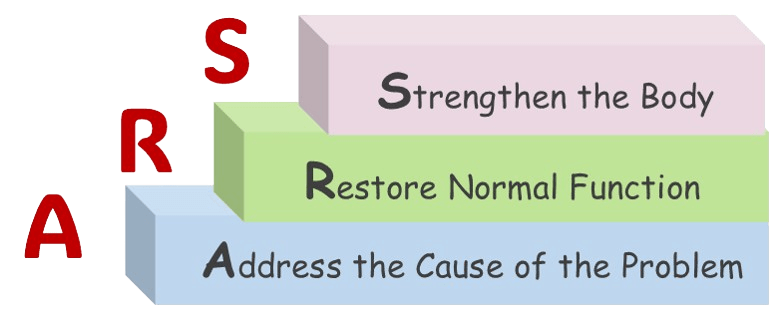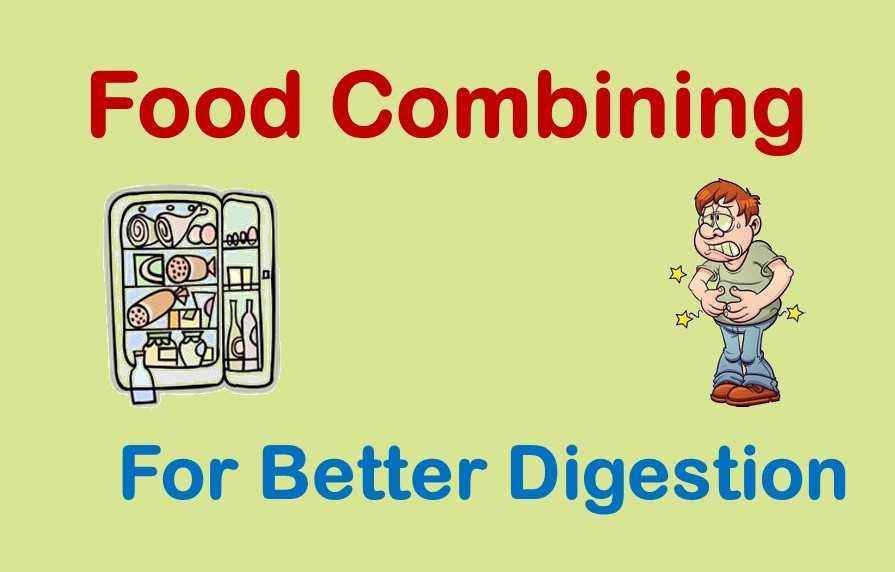Blog
Food Combining for Better Digestion
The purpose of food combining is two-fold, you want to reduce the amount of bloating, gas and irritation in your stomach. This will improve your level of health because you’re now better able to absorb all the nutrients in your food. Keep in mind, it’s not “what you eat, it’s what your body absorbs.”
Think of food combining, the same way you would think about a sprained ankle. If you’ve sprained your ankle, you can probably still walk on it, but you can’t run on it. You don’t want to over-stress your ankle.
The same is true for an irritated and inflamed gut. You can eat, but you probably don’t want to eat a meal that is more difficult to digest. It’s smarter to eat a meal that won’t irritate or inflame your gut – that’s what Food Combining is all about.
Food Combining and a Balanced Diet
We have been told that we need to have a balanced diet consisting of proteins, carbohydrates, and fats. However, when you look at all the other mammals in the animal kingdom. You will see none of the other animals eat a balanced diet either. They eat a whole stack of leaves, bananas or meat at one time. This allows for greater absorption and assimilation of their food.
What you need to understand is that various foods digest or take longer than other foods to get broken down. Carbohydrates digest very rapidly, whereas proteins and fats take anywhere from 2-4 hours or more. So, maybe some of your digestive problems can be reduced by simply combining your meals better. Think of food combining, like relationships and marriage – some people are just not meant to be together.
Here are a few of the classic meals you want to be aware of
- Steak and potato
- Chicken and rice, noodles, or pasta
- Fajitas and beans and rice
- Pancakes and eggs
The above meals are your classic protein and starchy carbohydrates. They don’t mix well together, because various foods take longer than other foods.
- Proteins and fats take 2-4 hours or longer to digest.
- Fruits digest very rapidly and are best eaten by themselves.
- Complex carbohydrates take a little longer than fruits and can be broken down further into
- Starchy carbohydrates
- Fibrous or green leafy carbohydrates.
The reason you want to know how long it takes to digest, is when you eat a protein and starchy carb together (steak and potato), all that protein, which takes 2-4 hours to digest is going to hold back all that sugar until it is all broken down and ready to be moved into your small intestine.
What I’m saying is those starchy carbs, as well as any simple carbohydrates from fruits and desserts, will slowly start to ferment inside your stomach, as it waits for the protein to be broken down by the hydrochloric acid (HCL) in your stomach. On top of that, all those starchy carbs will also dilute the concentration of HCL in your tummy, thus minimizing the effectiveness of the acid needed to breakdown protein.
Someone with a healthy gut can digest that meal, but if your tummy is in a weakened state, ala the sprained ankle. Wouldn’t it be better to give yourself a meal that is easier on your gut?
More importantly, or more devastating to your health, is that when you eat a meal that isn’t properly broken down by your Digestive Juices (acid and enzymes). All that undigested food will start to putrefy and rot as it flows through your GI tract. What that means is that now you are feeding a lot of the ‘bad’ bacteria in your GI tract. You’re literally giving more ammo to all the various ‘bad’ bacteria inside your GI tract. Can you say yeast over-growth and candida?
It was Hippocrates, the Father of Medicine who said, “all illness begins in the gut.”
The Protein Dilemma
If you are eating more protein, you need to make sure you are producing enough hydrochloric acid (HCL) to break down the added protein. No HCL – No Protein Digestion, it’s that simple! Unfortunately, too many people do things that limit their HCL production or effectiveness by Diluting or Suppressing their HCL.
Acid isn’t a bad thing; it has several vital functions and one of them is to purify whatever you eat. Your food could be loaded with various bacteria, viruses, parasites, and other non-savory germs. Remember, we haven’t always been eating off stainless steel. So, one of the purposes of the hydrochloric acid is to acidify and kill all those little nasty germs and pathogens that could be in your food.
Think of how important that is the next time the waiter, cook or delivery person handles your food. If they have a runny nose, or accidentally sneezes on your food, or they didn’t wash their hands – do you get the picture? I haven’t even mentioned the possibility that the food could have already started to spoil.
Hydrochloric Acid does so much more than just purify your food and breakdown your protein, so don’t be quick to suppress or dilute it.
How we Dilute our Meals
I can’t talk about digestive problems and food combining without talking about how easy it is to hamper your digestion by diluting your own digestive juices. One way we dilute our HCL is by eating too many starchy carbs, it dilutes the concentration of HCL. The second way to dilute your HCL concentration is by drinking too much fluid (water, wine, juice, tea, coffee, beer, etc.) with your meal, especially ice-cold drinks.
Think of your digestive juices (enzymes and HCL) like laundry detergent. You need to add enough soap to clean out the stains, otherwise it doesn’t get cleaned! When it comes to digestion, all that extra fluid and food can lessen the concentration of your digestive juices and hamper your ability to properly digest your food.
- If you want to eat fruit, eat it by itself.
- It’s OK to eat starchy carbohydrates with simple sugars. It’s not a great combination, but it’s OK or better than nothing.
- Don’t eat a protein rich meal with starchy carbohydrates, instead choose your fibrous carbs, such as broccoli, cauliflower, asparagus, zucchini or mix it with a salad.
Two final points. As we age we produce less enzymes and hydrochloric acid, which is why I am a big fan of digestive enzymes and chewable enzymes. I’ll have to come back and talk about what you should look for in a digestive enzyme another time.
The last or second thing has to do with eating on the go, on the run, in a hurry, in the car. If that’s you, there’s a pretty good chance you are NOT allowing your digestive system to contribute all the necessary Digestive Juices needed to breakdown your food. Again, that’s another reason why digestive enzymes could be so important for you!



